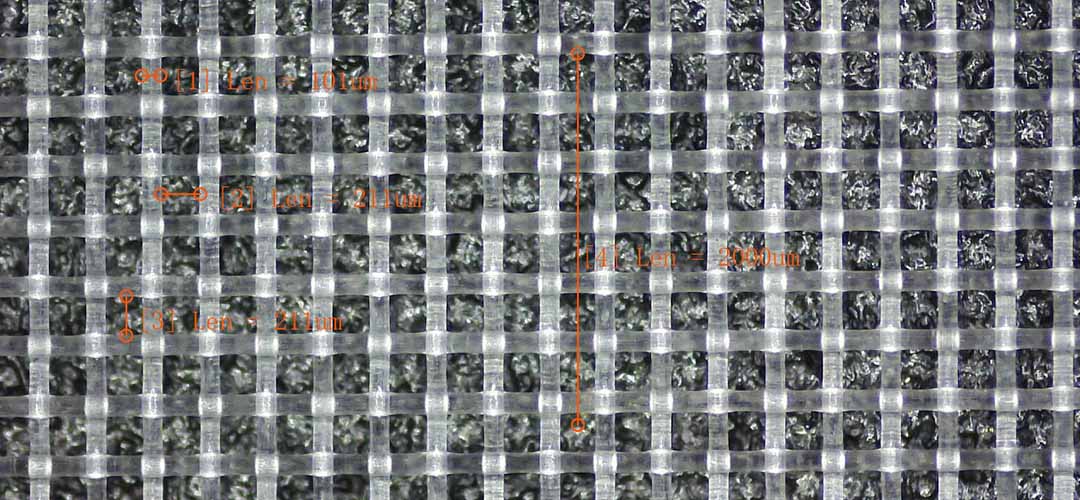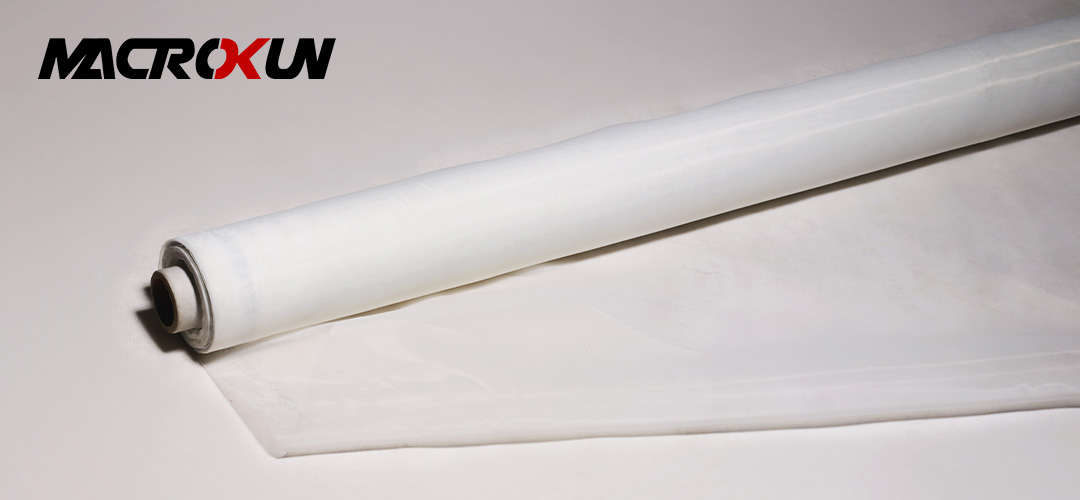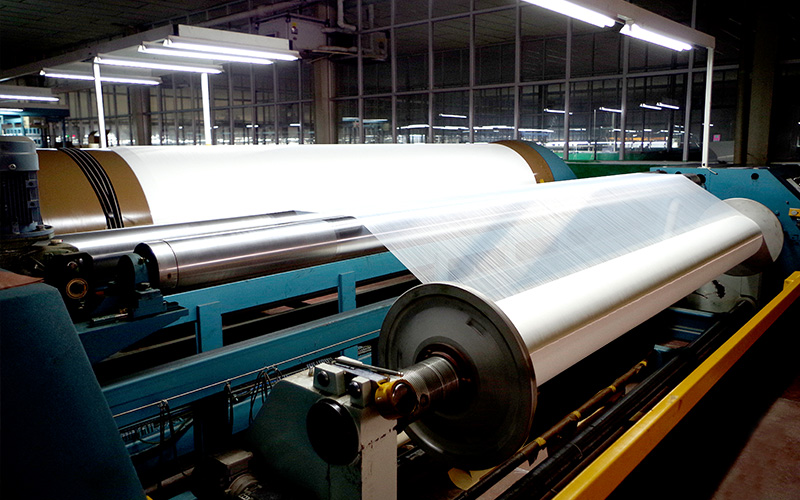Nylon filter mesh is a versatile material that is commonly used in a wide range of filtration applications. From industrial processes to laboratory settings, nylon filter mesh offers excellent filtration capabilities and durability. However, not all nylon filter mesh is created equal. There are various types of nylon filter mesh available, each with its own unique characteristics and applications.

One of the most common types of nylon filter mesh is monofilament nylon mesh. This type of mesh is made from a single strand of nylon fiber, which results in a smooth surface and uniform pore size. Monofilament nylon mesh is ideal for applications that require high flow rates and precise filtration, such as in the pharmaceutical and food industries.
Another type of nylon filter mesh is multifilament nylon mesh. Unlike monofilament nylon mesh, multifilament nylon mesh is made from multiple strands of nylon fiber twisted together. This results in a more porous mesh with a higher surface area, making it ideal for applications that require high dirt-holding capacity and particle retention, such as in water treatment and chemical processing.
In addition to monofilament and multifilament nylon mesh, there are also variations in mesh weave patterns. For example, plain weave nylon mesh is the most common weave pattern and is characterized by a simple over-under pattern. This weave pattern provides good strength and stability, making it suitable for general filtration applications.
On the other hand, twill weave nylon mesh features a diagonal pattern that provides increased strength and durability. Twill weave nylon mesh is often used in applications that require high tensile strength and resistance to abrasion, such as in the automotive and aerospace industries.

In addition to weave patterns, nylon filter mesh is also available in different mesh sizes. Mesh size refers to the number of openings per linear inch in the mesh, with higher mesh sizes indicating smaller openings. For example, a 100 mesh nylon filter mesh has 100 openings per linear inch, while a 200 mesh nylon filter mesh has 200 openings per linear inch.
The choice of mesh size depends on the specific filtration requirements of the application. Finer mesh sizes are suitable for capturing smaller particles, while coarser mesh sizes are better for high flow rates and larger particles. It is important to select the right mesh size to achieve the desired level of filtration efficiency.
In conclusion, nylon filter mesh offers a wide range of filtration options to suit various applications. Understanding the different types of nylon filter mesh, including monofilament and multifilament nylon mesh, as well as weave patterns and mesh sizes, is essential for selecting the right mesh for your filtration needs. Whether you need precise filtration in the pharmaceutical industry or high dirt-holding capacity in water treatment, there is a nylon filter mesh available to meet your requirements. Explore the different options and choose the nylon filter mesh that best suits your filtration needs.
Nylon filter mesh has emerged as a versatile solution across various industries, owing to its unique properties such as durability, chemical resistance, and flexibility. These characteristics make it an ideal choice for applications ranging from food and beverage processing to pharmaceuticals and water treatment. In the food industry, nylon filter mesh is commonly utilized for straining liquids, ensuring that unwanted particles are removed while allowing the desired product to pass through. This is particularly important in processes such as juice extraction, where maintaining the purity and quality of the final product is paramount. The fine mesh size can be tailored to meet specific filtration needs, ensuring that even the smallest impurities are effectively captured.
Transitioning to the pharmaceutical sector, nylon filter mesh plays a critical role in the production of sterile products. In this industry, the need for contamination-free environments is non-negotiable. Nylon filters are employed in various stages of drug manufacturing, including the filtration of solvents and the clarification of solutions. Their ability to withstand high temperatures and aggressive chemicals makes them suitable for processes that require stringent hygiene standards. Furthermore, the mesh can be used in laboratory settings for sample preparation, where precise filtration is essential for accurate results.
In the realm of water treatment, nylon filter mesh is indispensable for both industrial and municipal applications. It is often used in pre-filtration systems to remove larger particles before water undergoes further purification processes. This initial filtration step is crucial in extending the life of downstream equipment, such as reverse osmosis membranes, by preventing clogging and fouling. Additionally, nylon mesh filters are employed in wastewater treatment facilities, where they help in the removal of solids and other contaminants, thereby improving the overall quality of treated water.
Moreover, the automotive industry has also recognized the benefits of nylon filter mesh. It is utilized in various applications, including fuel filtration and air intake systems. The mesh‘s ability to filter out particulates while allowing for optimal flow rates is essential for maintaining engine performance and efficiency. As vehicles become more sophisticated, the demand for high-performance filtration solutions continues to grow, making nylon filter mesh a critical component in modern automotive design.

In the electronics sector, nylon filter mesh is used in the production of components that require precise filtration to ensure quality and reliability. For instance, it is employed in the manufacturing of semiconductors, where even the smallest contaminants can lead to significant defects. The mesh‘s fine filtration capabilities help maintain the integrity of the production process, thereby enhancing the overall performance of electronic devices.
As industries continue to evolve, the applications of nylon filter mesh are expanding. Its adaptability allows for customization in terms of mesh size, thickness, and chemical compatibility, making it suitable for a wide range of filtration needs. This versatility not only enhances operational efficiency but also contributes to product quality across various sectors. In conclusion, the diverse applications of nylon filter mesh highlight its importance in modern industrial processes. As businesses seek to improve their filtration systems, the continued innovation in nylon mesh technology will undoubtedly play a pivotal role in meeting the challenges of tomorrow’s filtration requirements.
Nylon filter mesh has emerged as a preferred choice in various filtration applications due to its unique properties and versatility. One of the primary benefits of using nylon filter mesh is its exceptional strength and durability. Unlike other materials, nylon exhibits a high tensile strength, which allows it to withstand significant pressure and mechanical stress. This characteristic makes it suitable for demanding environments, where other filter materials might fail. Furthermore, nylon is resistant to abrasion, ensuring a longer lifespan and reducing the frequency of replacements, which can lead to cost savings over time.
In addition to its strength, nylon filter mesh is also highly resistant to a wide range of chemicals. This resistance makes it an ideal choice for applications involving corrosive substances, as it can maintain its integrity and performance even in harsh conditions. Consequently, industries such as pharmaceuticals, food processing, and chemical manufacturing often rely on nylon mesh for their filtration needs. The ability to withstand various chemicals without degrading ensures that the filtration process remains efficient and effective, thereby enhancing overall productivity.
Another significant advantage of nylon filter mesh is its versatility in terms of mesh sizes and configurations. Available in a variety of pore sizes, nylon mesh can be tailored to meet specific filtration requirements. This adaptability allows users to select the appropriate mesh size for their particular application, whether it involves coarse filtration or fine particle separation. Additionally, nylon filter mesh can be manufactured in different forms, such as sheets, rolls, or custom shapes, providing further flexibility for various filtration systems. This wide range of options ensures that users can find a solution that perfectly fits their needs.
Moreover, nylon filter mesh is lightweight, which simplifies handling and installation. This feature is particularly beneficial in applications where weight is a critical factor, such as in portable filtration systems or equipment that requires frequent relocation. The ease of installation also contributes to reduced labor costs and downtime, allowing for more efficient operations. As a result, businesses can optimize their processes and improve overall efficiency.
The ease of cleaning and maintenance associated with nylon filter mesh is another noteworthy benefit. Many nylon meshes can be cleaned and reused, which not only extends their lifespan but also promotes sustainability. By reducing waste and minimizing the need for new materials, businesses can adopt more environmentally friendly practices. This aspect is increasingly important in today’s market, where sustainability is a growing concern for consumers and companies alike.
Furthermore, nylon filter mesh offers excellent filtration efficiency. Its fine mesh structure allows for the effective capture of particles while maintaining a high flow rate. This balance between filtration efficiency and flow capacity is crucial in many applications, as it ensures that processes remain uninterrupted while achieving the desired level of purity. The ability to filter out contaminants without significantly impeding flow makes nylon mesh an invaluable asset in various industries.
In conclusion, the benefits of using nylon filter mesh for filtration solutions are manifold. Its strength, chemical resistance, versatility, lightweight nature, ease of maintenance, and high filtration efficiency make it an ideal choice for a wide range of applications. As industries continue to seek reliable and effective filtration solutions, nylon filter mesh stands out as a material that meets and exceeds these demands, ensuring optimal performance and sustainability in filtration processes.
Pre: Efficient Particle Removal with Nylon Mesh 40 Micron
Next: Durable and Versatile Nylon Cloth for All Filtration Needs

MACROKUN has established long-term and stable cooperative relations with many transportation companies such as China Post, DHL, FEDEX, USPS, UPS, etc. Of course, MACROKUN can also provide air and sea transportation. The powerful logistics system enables all MACROKUN'S Printing Mesh, Filter Mesh and Filter Bags and so on to be easily and efficiently transported to any place. For quotes and inquiries, please email our sales team.





